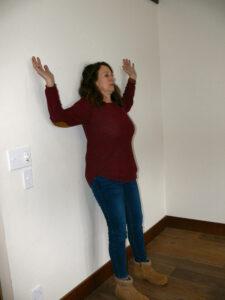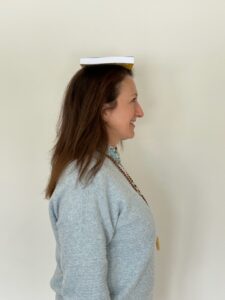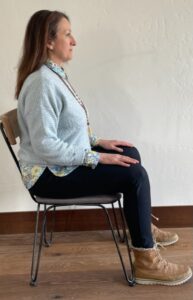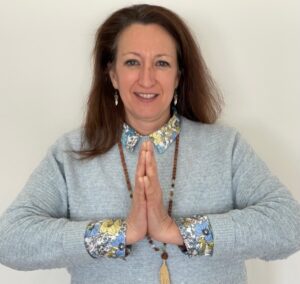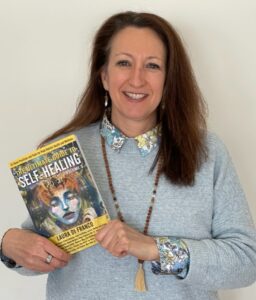 By Elaine Viets
By Elaine Viets
Here’s one reason why I like my London publisher, Severn House: Editing.
Like most writers, I try to turn in clean copy. I’m also an editor myself. So I appreciate the masterful way Severn House edited my latest Angela Richman mystery, Late for His Own Funeral, due out in the US this November. The editors took care to fine-tune the sentences with small but significant changes.
Take a look at these. The way I wrote the selection is first. The edited version is second.
(1) In this first example, Angela is recalling her friend’s doomed married. The change helps set the scene.
Elaine: Back then, Sterling had seemed awed by Camilla’s cool elegance, and she fell in love with his humor and energy.
Severn House: When they first met, Sterling had seemed awed by Camilla’s cool elegance, and she fell in love with his humor and energy.
 (2) Elaine: I walked over to him and looked right into his red eyes. We were both the same height.
(2) Elaine: I walked over to him and looked right into his red eyes. We were both the same height.
Severn House: I walked over to him and looked right into his red eyes. We were the same height.
This change gets rid of a redundancy. If Angela could look the man in the eyes, then they were the same height. I didn’t need that “both.”
 (3) Elaine: The cut on her forehead had been stitched. She’d have a heck of a bruise there tomorrow.
(3) Elaine: The cut on her forehead had been stitched. She’d have a heck of a bruise there tomorrow.
Severn House: The cut on her forehead had been stitched. She’d have a heck of a bruise there.
I didn’t need that “tomorrow.”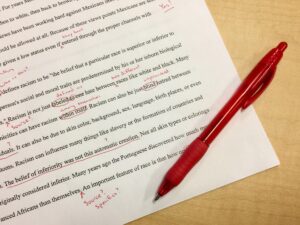
(4) This change makes the sentence sing.
Elaine: The child wore a pink polka-dot T-shirt and jeans, and had pink ribbons in her hair.
My editor rearranged it as:
Severn House: The child wore jeans and a pink polka-dot T-shirt, and had pink ribbons in her hair.
(5) Here’s a shorter way of saying the same thing:
Elaine: We were at my car now.
Severn House: We reached my car.
 (6) Elaine: I fired up my iPad and opened up the Death Scene Investigation form.
(6) Elaine: I fired up my iPad and opened up the Death Scene Investigation form.
Severn House: I fired up my iPad and opened the Death Scene Investigation form.
No need for that second “up.”
(7) Another unnecessary phrase bites the dust:
Elaine: “It’s going to be rough for a bit,” I said. “But you’ll get through it. I promise. You have a real advantage – one of the best lawyers in the Midwest.”
With that, Mrs. Ellis entered the room carrying a tray. “I’ve brought you some food, Camilla dear.”
Severn House: “It’s going to be rough for a bit,” I said. “But you’ll get through it. I promise. You have a real advantage – one of the best lawyers in the Midwest.”
Mrs. Ellis entered the room carrying a tray. “I’ve brought you some food, Camilla dear.”
(8) This small change makes for a cleaner sentence.
Elaine: I was on duty at midnight tonight, so I packed a small overnight bag with my DI uniform and added my office cell phone charger.
Severn House: I was on duty at midnight, so I packed a small overnight bag with my DI uniform and added my office cell phone charger.
(9) Elaine: Millie watched fascinated while the server mixed the ingredients together in a large glass bowl, then added the dressing and tossed the salad.
Severn House: Millie watched fascinated while the server mixed the ingredients in a large glass bowl, then added the dressing and tossed the salad.
If the ingredients were mixed in a bowl, naturally they’d be “together.”
(10) Here’s another two-letter change:
Elaine: Linda’s apartment, 615, was in the middle of the hall. I could hear the TV on and hoped Linda was home.
No need for that “on.” If I could hear the TV, it was definitely on.
(11) One last one-word change.
Elaine: I went home to my place, feeling discouraged. Chris and I didn’t have a fight. I just wanted to be alone tonight.
Severn House: I went home to my place, feeling discouraged. Chris and I didn’t have a fight. I just wanted to be alone
Most of these changes were small and subtle. Also, I don’t have to accept any that I don’t like. Some got lost in translation when they crossed the Atlantic. Like this one:
Angela says: “I was a bridesmaid in her wedding ten years ago, and we marched down the same aisle now blocked by her husband’s casket.”
The copyeditor had changed it to: “I was a bridesmaid ‘at’ her wedding.” I had to explain that if you’re “at a wedding” you’re attending it, while if you’re “in a wedding,” you’re an attendant.
Sometimes we truly are two countries divided by a common language.
 Now hear this: My Dead-End Job mysteries Murder with Reservations, Clubbed
Now hear this: My Dead-End Job mysteries Murder with Reservations, Clubbed
to Death, Murder Unleashed and Killer Cuts are now on Scribd.com. Listen to them during your 30-day free trial.

 Have you ever written from the perspective of a character you hated?
Have you ever written from the perspective of a character you hated? 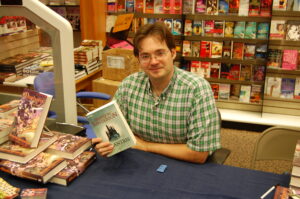
 Today is National Day of Unplugging, from sundown tonight to sundown tomorrow night, a time to unplug from technology, electronics, and social media. So, are you going to unplug? Could you do it? Would you write? And how (charcoal on the wall of a cave, mitten in the snow, quill pen, pencil, fountain pen, ball point, Sharpie)?
Today is National Day of Unplugging, from sundown tonight to sundown tomorrow night, a time to unplug from technology, electronics, and social media. So, are you going to unplug? Could you do it? Would you write? And how (charcoal on the wall of a cave, mitten in the snow, quill pen, pencil, fountain pen, ball point, Sharpie)?

 It feels like this: it’s a big mountain, full of mud. It’s raining. Hard. I’m carrying this heavy weight. But I’ve got this! It’s just that some days it’s just…so exhausting. Or I have a migraine. Or I’m running my kids around (single mom). Or I’ve got client deadlines (solopreneur).
It feels like this: it’s a big mountain, full of mud. It’s raining. Hard. I’m carrying this heavy weight. But I’ve got this! It’s just that some days it’s just…so exhausting. Or I have a migraine. Or I’m running my kids around (single mom). Or I’ve got client deadlines (solopreneur).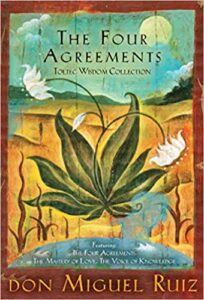 As a survivor of
As a survivor of  Rachel Thompson released the
Rachel Thompson released the 



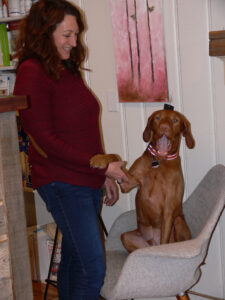 Recently I had an enlightening conversation with a chiropractor, Dr. Erika Putnam, shown here consulting with her office manager, Hartty.
Recently I had an enlightening conversation with a chiropractor, Dr. Erika Putnam, shown here consulting with her office manager, Hartty.